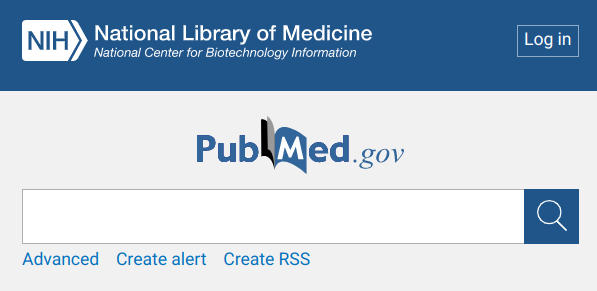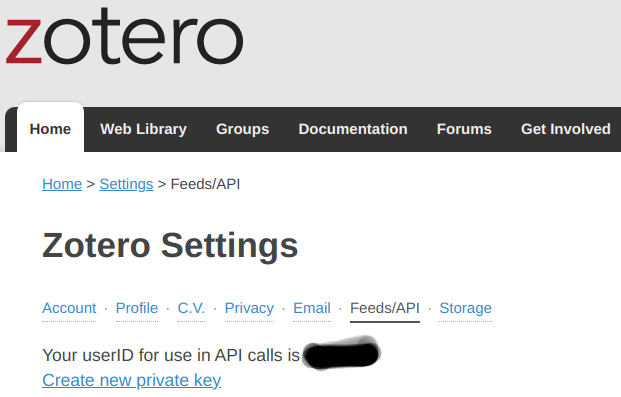9 How To Manage References
Use Zotero
9.1 Zotero
Why Zotero? There are a number of other reference managers available perhaps the most popular is Mendeley so why am I recommending Zotero? A number of years ago Mendeley might have been a better choice than Zotero in terms of features, this gap has now largely closed with Zotero providing superior features in a number of areas. The primary area of disparity where Mendeley is still ahead is mobile app support. Predictably Mendeley’s development stagnated after an initial bump in activity arising from the cash infusion following its acquisition in 2013 by Elsivier. It has become increasing closed and as of 2018 prevents complete export of user data by encrypting its local database.
A reference management system is something that you will ideally have with you for your entire academic career. Building a comprehensive personal database of references and personal notes/annotations represents a massive investment of time and energy. Longevity, openness and interoperability are therefore features that should be prioritized in selecting a reference manager. If a particular tool ceases to exist you want to be able to migrate your library to new ones as easily and completely as possible. It is also advantageous to have a library which readily interoperates with additional tools for exploring analyzing and processing that library. Zotero being an open source software project it is much more likely to have and retain these characteristics than any proprietary solution which are incentivised to lock-in users to their platform by reducing data portability.
9.1.1 RSS feeds in Zotero
Really Simple Syndication
One of my favorite features of Zotero for keeping up to date with the latest developments in the literature is the RSS feed reader.
You can import a new RSS feed by clicking: New Library (Icon, top left) > New Feed > From URL
Some of the best ways to populate your feed with interesting papers/manuscripts are:
Creating RSS feeds from NCBI/PubMed searches is trivially easy
Define any custom search you want with PubMed’s advanced search tool and simply click the ‘Create RSS’ link under the search box. Any new results for these search terms will now appear in this feed.
PubMed RSS \(BioR \chi iv\)’s RSS feeds are useful for staying ahead of the curve.
Most blogs have or can be adapted to an RSS feed so if you have a favorite academic blogger you can get their latest posts directly in Zotero
Are you a compulsive follower of academic twitter? Get your favorite follows’ feeds directly in your reference manager with fetchrss to more quickly import their recommended reading. If Elon’s completely trashed twitter by the time you’re reading this every mastadon account is also an RSS feed by default so you come join us in the fediverse genomic.social, scholar.social and fediscience.org are instances with an academic bent and an alternative platform governance model (W. Gehl and Zulli 2022 [cito:citesAsRecommendedReading]). You can find me @RichardJActon@fosstodon.org.
9.1.2 Zotero Web
Zotero has a web-client through which references can be accessed, shared and synchronized between devices. There is a cap to the amount of data you can store on their servers for free, after this you can either pay a subscription for more storage or host your own synchronization server (though this is not easy).
The web-client is the way I would recommend using Zotero on mobile. You can pin the app to your phone’s home screen using the Firefox mobile browser by tapping install in the menu once you have navigated to the page for the Zotero web app. Depending on your mobile platform you may be able to install Zotero Web as as progressive web app with other browsers.
You can create groups in Zotero Web to share references with others I recommend that labs maintain Zotero groups with reference collections for:
- The labs own publications
- A curated list of recommended reading for new lab members
- The papers from any Journal Club sessions that lab holds
Checkout the Zotero library of HDBI publications, if yours are not there email me and I’ll get them added as long as they acknowledge the HDBI Wellcome grant (ref: 215116/Z/18/Z).
9.1.3 Extensions & Integrations
Zotero has an ecosystem of plugins which extend its functionality.
Zotero integrates with Microsoft Word, LibreOffice, OnlyOffice, and Google Docs as well as RStudio’s Visual document editor mode.
If you are a user of note taking applications such as LogSeq or Obsidian Zotero has nice integrations with many of these as well.
To enable native Zotero RStudio Integration generate and API key from the Zotero web interface. (I recommend that you store it securely in your bitwarden vault as custom hidden field associated with your Zotero web login credentials.)
Settings > Feeds/API > Create new private key

You can enter this API key in RStudio at Tools > Global Options > Rmarkdown > Citations.

- Video (quickstart) Zotero for Beginners: A guided walkthrough
- Video (longform) This is a playlist of an extended Zotero Course Mastering Zotero
- Video (shortform) Using Zotero Groups for collaborative projects Zotero Tutorial: Group Collaboration like the one I setup for HDBI papers.
- Text (documentation) Official Zotero Documentation
9.2 Personal Knowledge Management
“[W]e are all chimeras, theorized and fabricated hybrids of machine and organism; in short, we are cyborgs.”
- Donna Haraway (1991)
Bullet Journaling, Notes, Task Management, Exobrains, Zettelkasten, spaced repetiton & productivity
For things that don’t fall under the umbrella of bibliographies or lab notes you may need a different approach and set of tools to their electronic organisation. Personal Knowledge Management can be a serious rabbit hole of exploring all the many and varied tools and organisational philosopies that exist out there. Whatever approach you choose to take to this I would advise: “keep it simple or you won’t keep it up”.
It can be incredibly useful to have an dedicated electronic notes tool to keep track of notes, thoughts ideas, sources less formal bibliographic references, tasks and the relationships between them. One of the biggest value adds over paper is keyword search. Remember a seminar you attended three years ago on topic X or by person Y? just search for it/them and bang! you’ve got your notes from that session. Another useful feature in many modern note taking apps can be representations of relationships between notes as graphs so that you can explore related notes containing related concepts.
When it comes to choosing a personal notes tools the same advice that I offered for selecting an ELN in Section 4.1 and a reference manager in Chapter 9 largely holds true.
9.2.0.1 Open Source Options
9.2.0.1.1 Personal favorites
Simple text notes in markdown/emacs org-mode like syntax
Strong Daily log feature
Graph of note relationships
Extensions / plugins system
Zotero Integration
Spaced repetition / flashcards tool with anki integration
Optional syncing with git or basic file sync through tools like (Syncthing, Nextcloud, dropbox, Google drive)
Simple text based notes in markdown with full support for extensions like \(LaTeX\) Maths and mermaid diagrams
freehand drawing with canvas notes
Very Feature Rich
Highly extensible / hackable / customisable with scripting
Graph of note relationships
Split view for looking at multiple notes
Optional syncing through a server, self-hosted or paid hosting available
Built-in encryption option
9.2.0.1.2 Others
Simple markdown based notes
Zotero Integration
Specific support for Zettelkasten style information organisation
pandoc based document export to pdf and other formats
Dead simple markdown based notes, & tasks
Well established and Reliable
Many solid syncing options
Built-in encryption option
Good mobile app support
Browser plugins to capture web content
Simple text based notes in markdown like syntax
Nice to those who like the kanban style of task management
Features very similar to a minimal version of Notion
Tabular data view
optional sync, focal board has a paid hosted option
9.2.0.1.3 Up & coming
AFFiNE has some cool UI innovations but is still in Alpha
appflowy Similar to Focalboard / Notion
9.2.0.2 Some popular proprietary r emo::ji("disappointed") solutions
Simple text notes in markdown (paid closed-source servers but open notes file format)
Graph of note relationships
General markdown like text notes
Tabular data view
More team focused features
For the sake of brevity I’m not going to delve into separate todo/task management solutions independent of tools whose primary function is note taking for now.
Your notes and/or task management tool, your password vault, your electronic lab notebook and your potentially your Renku projects come together to form an external extension of mind an exobrain if you will, a prosthetic that extends your information management, integration & recall capabilities.